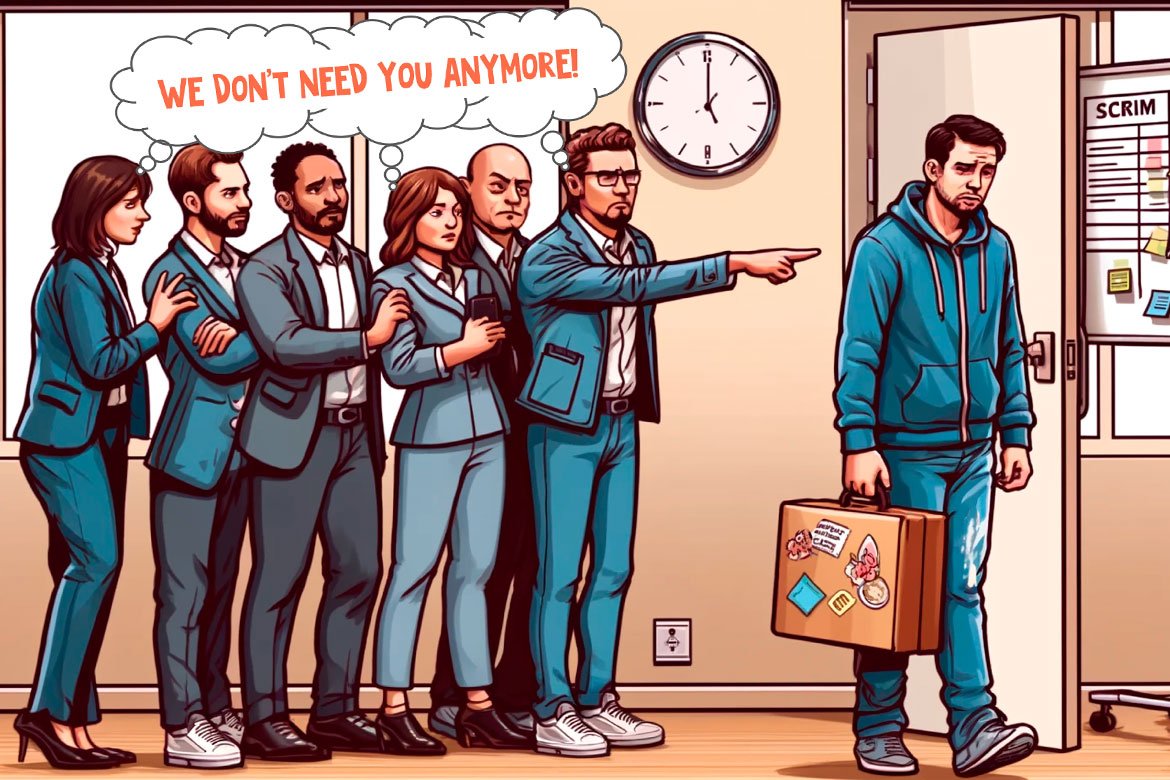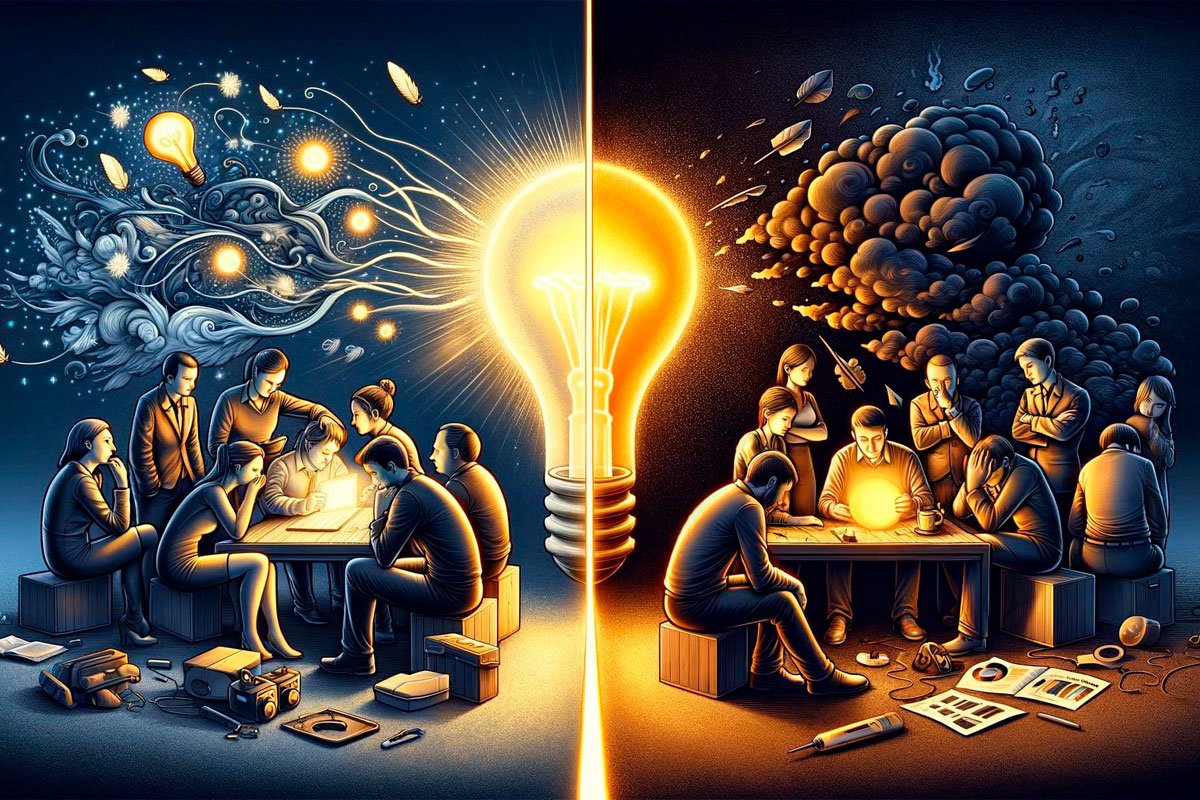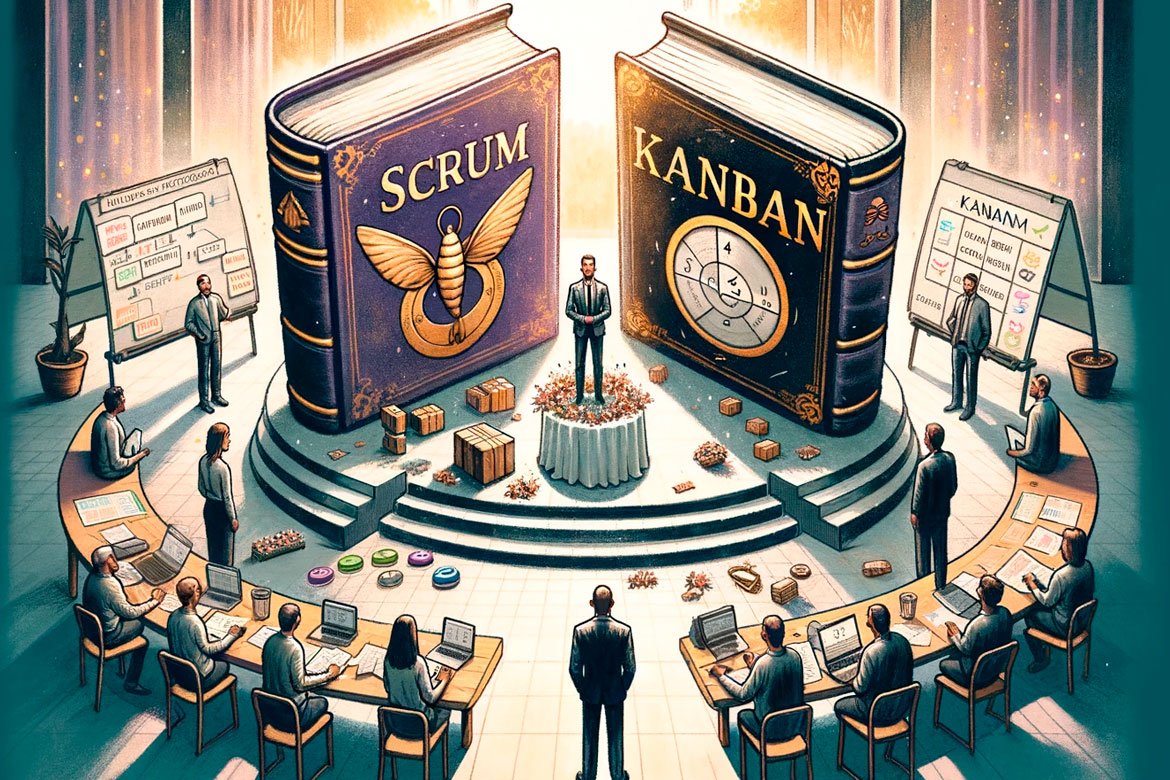Tag: Teams

What Do You Mean by Value Vision?
•
At first glance, the question seems straightforward. I mention “Value Vision” so often in my trainings, consultations, and mentoring sessions that I sometimes forget it’s not an obvious concept that needs no definition. But reality brings me back down to earth, usually through the very question posed in the title.…

Local Transformation? Better Avoid It, But If You Must, Start with Interfaces.
•
A common scenario is when a large company initiates a pilot transformation. They select a specific department or project as the experimental area to introduce a new culture, new interaction principles, and new engineering practices. The aim? To scale the accumulated experience across the entire company. A good idea? In…

Does a Mature Scrum Team Need a Scrum Master?
•
I often encounter the question, “Does a mature team need a Scrum Master?” Most frequently, I am asked this during training sessions when I start a discussion about the purpose and necessity of a Scrum Master. Many people seem to think that there are some contradictions and ambiguities. Initially, we…

Signs of Strong Teams: Persistence vs. Stubbornness
•
When evaluating teams, two qualities often need clarification: persistence and stubbornness. Scrum masters, leaders, and managers must distinguish between these traits. Here’s why. Teams dominated by persistence don’t require gamification and external motivation to move forward and achieve goals. Of course, such tactics can be applied to these individuals, but…

How to Motivate a Team?
•
So, how to motivate a team? My clients and mentees ask this question frequently. “How will you motivate your team?” Throughout my career as a manager, Scrum Master, and Agile coach, this question has relentlessly followed me in interviews at new companies. And as far as I know, it’s a…

Why Teams Shouldn’t Choose Between Scrum and Kanban
•
Between Scrum and Kanban. First: A Few Words on the Nature of Demand We’re launching a new product team; should we choose Scrum or Kanban? This question, in one form or another, has been haunting me for at least the last ten years. Most professionals working with teams frequently encounter…

The Strategic Value of Team Topologies
•
The dynamic nature of the modern world demands quick reflexes and a strategic approach to team organization, making it a pivotal factor for success. The increasing complexity of IT systems require diverse and specialized competencies. This is why traditional cross-functional development teams are finding it increasingly challenging to manage the…

What Should We Do With Dysfunctional Hats Of A Scrum Master?
•
In the Scrum Framework, the accountability of the Scrum Master is often metaphorically described through various “hats” they wear, indicating the diversity of their responsibilities and the adaptability required to fulfill their role effectively. Here is a well-known list of the main “hats” of a Scrum Master: Each “hat” signifies…

From Manipulation to Sabotage: Recognizing and Addressing Toxicity
•
Dysfunctional (or toxic) employee behaviour poses a significant threat to productivity, organizational culture, and team effectiveness. This behaviour can take bizarre forms, ranging from manipulative negativity to outright discrediting of colleagues and evasion of professional responsibility. Such patterns create a detrimental working atmosphere. This leads to a decline in the…









